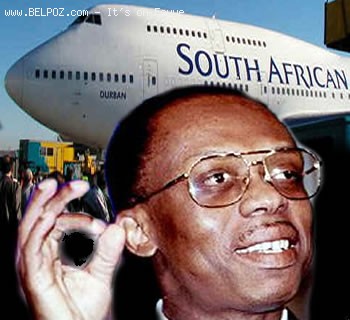SUCCESSIVE administrations in Washington have demonstrated an obsession with the presence in Haiti of Jean Bertrand Aristide — whether or not he is functioning as president of that Caribbean nation that languishes in a state of permanent crisis.
Latest example is the unsolicited advice publicly given by the Hillary Clinton-led US State Department that the former popular Roman Catholic priest of the poor, turned politician, should not return to his homeland before this coming Sunday's scheduled second round presidential run-off.
This is quite baffling. What gives the government of President Barack Obama the right — legal or moral — to publicly and presumably privately as well, request him to delay his planned imminent return to his homeland from exile in South Africa?
Twice elected to the presidency and twice ousted from power in mid-term, with the US Central Intelligence Agency as an accomplice with corrupt Haitian political and military leaders, Aristide was restored to power in 1994, with the use of military force by President Bill Clinton, who has continued to distinguish himself as a stout "friend'' of the people of Haiti.
By 2004, amid orchestrated domestic political turmoil, the Washington administration of President George W Bush was to play a leading role, along with France, in ousting President Aristide from power, against the protestations from the governments of the Caribbean community of which Haiti is a member state.
Aristide was flown into exile on a US military aircraft and following a brief period of political asylum in Jamaica, South Africa became the place of choice for his almost seven years in exile.
When the unprecedented earthquake-triggered devastation of Haiti occurred in January last year, Aristide was lamenting his absence from Haiti and has shown an interest to be back among "my fellow Haitians".
Following the surprise return to the country of ex-dictator Jean Claude Duvalier, Aristide applied for a new Haitian passport and signalled plans to return soon. However, once the passport was delivered he started to experience unexplained complications in official arrangements, including security, to return home.
He felt obliged that he had no interest in becoming involved in the ongoing political squabbles over the controversial outcome of last November's parliamentary elections which led to violent demonstrations and a necessary second round presidential run-off in the face of documented examples of electoral rigging
Early last month, then US State Department spokesman, Philip Crowley, was to go public with a claim that Aristide's return to Haiti before the second round presidential run-off "would be an unfortunate distraction and the two participating candidates (Mirlande Manigat and Michel Martelly) should be the focus at this time…"
That contention provoked an immediate protest demonstration from Haitians, including militant activists of Aristide's Fanmi Lavalas party, who cried "no Aristide, no second round (election)…"
As if bent on pursuing a course of action to deter Aristide — a former legitimate Haitian president forced out of office by the US and allies like France — from returning home before this Sunday's run-off presidential pol — a new State Department spokesman, Mark Toner, has emerged to sound a warning with an even more disturbing overtone.
For Toner, Aristide's return before Sunday's decisive vote, "can only be seen as a conscious choice to impact Haiti's elections", and that Washington was also seeking the cooperation of the South African government to persuade the former president from returning before the March 20 poll.
Why this fear of Aristide's presence at this time?
For seven years Aristide has been in exile. During that period no credible information was provided by either governments in Port-au-Prince or administrations in Washington (Republican or Democrat), that he has a political agenda to disturb the peace (sic) in Haiti, affect the conduct of the presidential run-off and create more problems for that poor nation of endless miseries.
The governments of Caricom should speak, unequivocally, in one voice, on the fundamental right of the former president of Haiti to return to his homeland, whenever he so determines, and that this should not be left to the whims and fancies of a foreign government, in this case one, ironically, headed by President Barack Obama.
It is quite understandable for the Joint Organisation of American States (OAS) and Caricom Mission in Haiti to have made their public appeal on Monday for a peaceful atmosphere to prevail for Sunday's final presidential run-off, and to have again denounced the political violence that had marred the first-round campaign of last November's parliamentary and presidential poll.
Nevertheless, it is quite strange that Caricom has refrained from commenting on the repeated public calls for Aristide to stay away from Haiti until after Sunday's second round run-off between the 70-year-old former first lady Manigat and 50-year-old pop singer Martelly.
For that matter, why the silence of outgoing Haitian President Rene Preval himself?
Having agreed to Aristide being given the new passport he required, and the former dictator Jean Claude Duvalier, is in Haiti and soon to face court trials for crimes committed, why not a statement of clarification on Aristide's right to return to his homeland, whenever he chooses?
By
Rickey Singh
Story Created:
Mar 16, 2011 at 12:42 AM ECT
Story Updated:
Mar 16, 2011 at 12:42 AM ECT






















